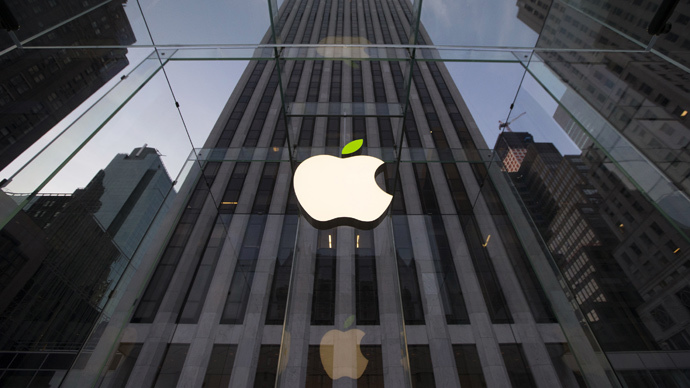FBI director wants access to encrypt Apple, Google users’ data, demands law ‘fix’

The FBI director has slammed Apple and Google for offering their customers encryption technology that protects users’ privacy. “Deeply concerned” James Comey wants to push on Congress to “fix” laws to ensure police can still access private data.
“It’s the equivalent of a closet that can’t be opened. A safe that can’t be cracked,” Comey, speaking at the Brookings Institute in Washington DC, referred to the encryption technology calling the new service “a marketing pitch.”
“But it will have very serious consequences for law enforcement and national security agencies at all levels,” he warned.
Apple has recently presented its latest Mac OS X operating system for desktop and laptop computers, encouraging its customers to use FileVault disk encryption technology to keep their data secure. The tool would also prevent NSA or FBI from having access to phones and computers.
Google said it wanted to follow suit with its Android operating system and “encryption will be enabled by default.”
If a customer does not decline the encryption offer, his or her computer or phone will be locked.
This means that the companies will not be able to unlock a phone or a hard drive to reveal photos, documents, e-mail or recordings stored within.
“Criminals and terrorists would like nothing more than for us to miss out,” Comey said, adding that encrypted information on “a bad guy’s phone has the potential to create a black hole for law enforcement.”
"Justice may be denied because of a locked phone or an encrypted hard drive," he said.
READ MORE: Mass internet surveillance is ‘corrosive of online privacy’ – UN report
While law enforcements would still be able to intercept conversations, it would be impossible to access call data, contacts, photos and emails.
Comey believes that “encryption threatens to lead all of us to a very dark place,” while the companies argue that it is a necessary option that will protect customers from unlawful surveillance and private data access.
Edward Snowden's revelations have provoked the US tech companies to find better protection for personal information.
Comey acknowledged: “The post-Snowden pendulum has swung too far in one direction—in a direction of fear and mistrust.”
“Some believe that the FBI has these phenomenal capabilities to access any information at any time—that we can get what we want, when we want it, by flipping some sort of switch,” he said. “It may be true in the movies or on TV. It is simply not the case in real life.”
The FBI director would like to see changes made to the Communications Assistance for Law Enforcement Act, or CALEA, “enacted 20 years ago—a lifetime in the internet age.”
Companies like Apple or Google, should be required to build lawful intercept capabilities for law enforcement, Comey says.
“We aren’t seeking to expand our authority to intercept communications,” he said. "We are struggling to keep up with changing technology and to maintain our ability to actually collect the communications we are authorized to intercept.”
CALEA only covers landline and cellphone companies, broadband services or internet phone services, which connect with traditional phones.
“We also need a regulatory or legislative fix,” Comey said, “so that all communication service providers are held to the same standard.”
Comey’s speech was not the first time he lashed out at Apple and Google for encrypting smartphones. In September, he told reporters in Washington that the encrypting technology offered by the companies, powering nearly 95 percent of the smart phones in the United States, severely hinder law enforcement operations.














